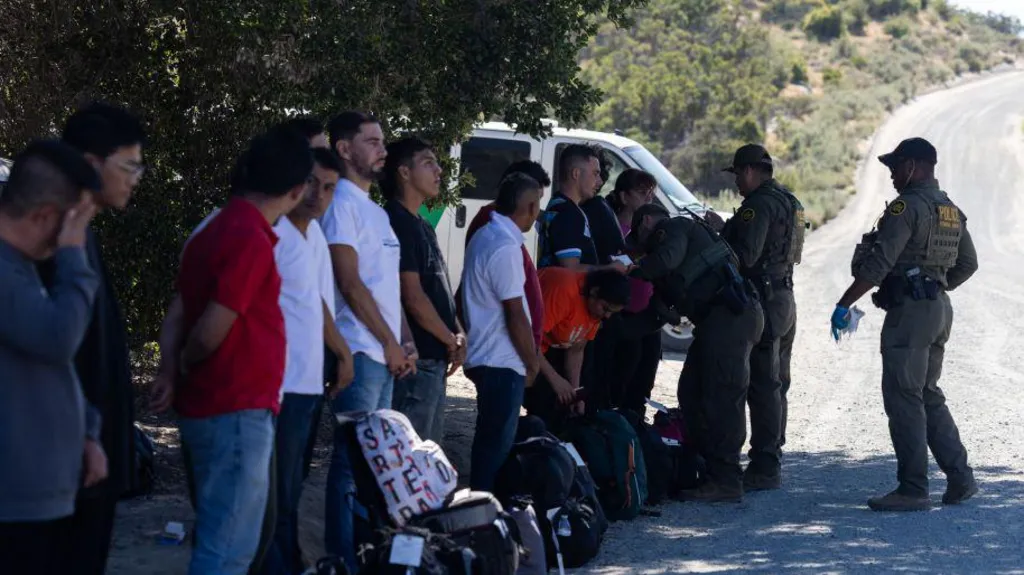President Joe Biden is poised to issue a comprehensive new executive order from the White House targeting the influx of migrants at the US-Mexico border, possibly as soon as Tuesday.
According to CBS, the order aims to expedite the deportation process for individuals entering the US unlawfully, bypassing asylum procedures once a daily threshold is reached.
This measure is intended to enable border officials to manage and restrict migrant arrivals more effectively, as outlined by three unnamed sources familiar with the forthcoming order.
Despite a significant decline in migrant arrivals this year, which some experts believe may not be sustainable, more than 6.4 million migrants have been intercepted crossing into the US illegally during Biden’s tenure—a historic high that has rendered him politically vulnerable as he seeks reelection.
Reports from CBS and other US media outlets suggest that Biden is considering leveraging a 1952 law to limit access to the American asylum system.
The law, known as 212(f), allows the US president to “suspend the entry” of foreigners if their arrival is “detrimental to the interests” of the country.
The Trump administration previously employed the same regulation to implement immigration and travel bans from several predominantly Muslim nations and to deny asylum to migrants apprehended crossing into the US unlawfully, prompting allegations of racism.
However, asylum processing at official ports of entry is anticipated to remain unaffected by the forthcoming order.
Approximately 1,500 asylum seekers utilise the Customs and Border Protection (CBP) app, CBP One, to schedule appointments and undergo processing daily at these ports.
Ahead of the president’s announcement, mayors from various border towns, such as Brownsville and Edinburg in Texas, were slated to attend the event in Washington.
Democratic lawmakers have reportedly been briefed on the plan, though the proposal is expected to face legal challenges, either from immigration advocates or Republican-led states.
A White House official informed the BBC on Friday that no definitive decisions had been reached regarding potential executive actions. Additionally, a White House spokesperson highlighted the failure of a bipartisan border security agreement earlier this year, citing opposition from Republicans in Congress.
“While Congressional Republicans chose to stand in the way of additional border enforcement, President Biden will not stop fighting to deliver the resources that border and immigrational personnel need to secure our border,” the spokesperson said.
“As we have said before, the administration continues to explore a series of policy options and we remain committed to taking action to address our broken immigration system,” the spokesperson added.
Republicans have criticized President Biden’s border plan as a political tactic for the upcoming election year, arguing that existing US laws already address illegal immigration but are not adequately enforced by the Democratic administration.
This critique emerges amid decreasing numbers of migrant detentions at the US-Mexico border. According to recent CBP statistics, approximately 179,000 migrant “encounters” were documented in April, a notable decrease compared to the historic high of 302,000 recorded in December.
Both US and Mexican officials attribute this decline largely to increased enforcement efforts by Mexican authorities, although experts caution that these reductions may not be sustainable in the long term.
The decline in migrant crossings at the US border coincides with a politically sensitive period for President Biden, as immigration emerges as a key electoral concern for many voters in the upcoming November presidential election.
A Gallup poll conducted at the end of April revealed that 27% of Americans consider immigration the most pressing issue facing the country, surpassing concerns about the economy and inflation.

